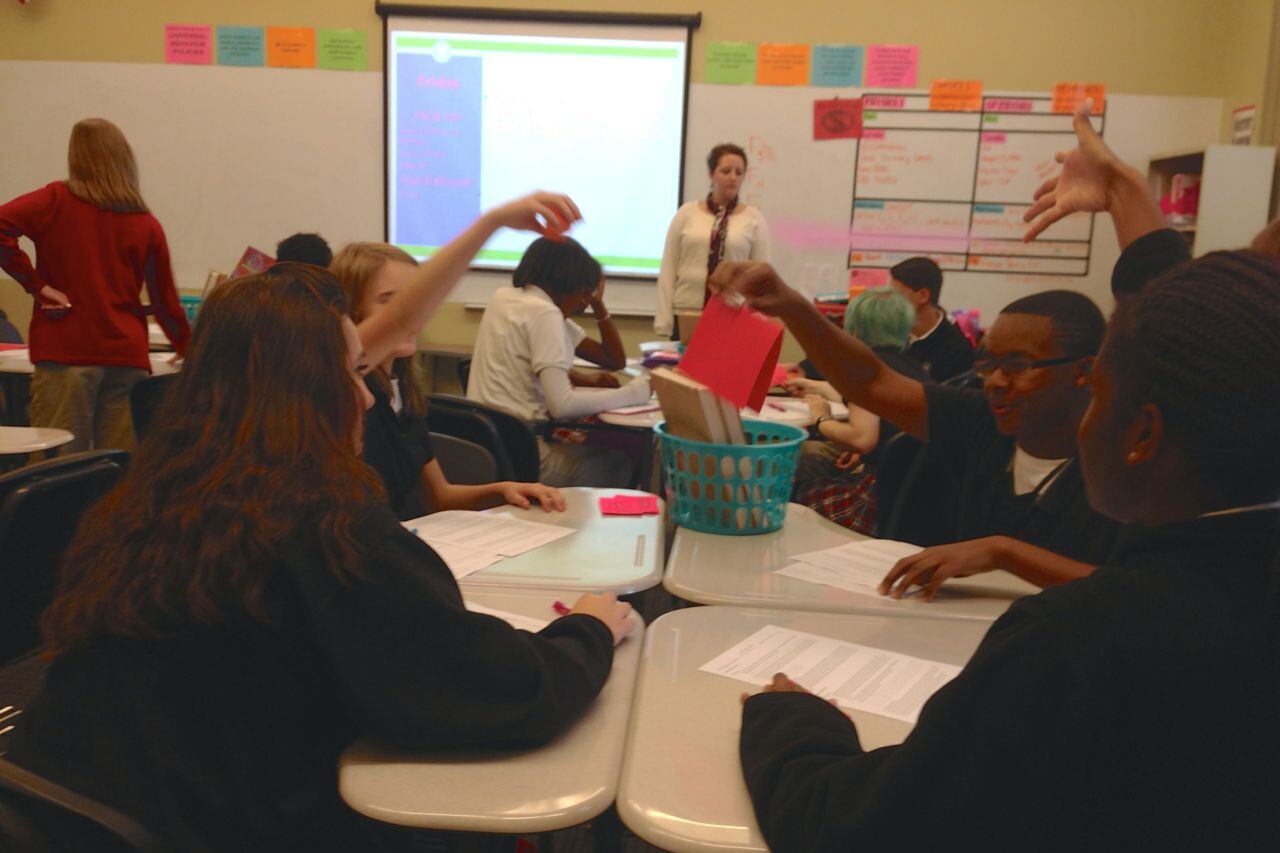Responding to urging from families and other advocates, Indianapolis Public Schools is proposing to share $5 million per year from a recent tax measure with its charter school partners.
IPS would give $500 for each of its students attending independently run charter schools under its umbrella. The district has about 10,000 students attending 25 charter-operated partner schools, known as innovation schools.
That’s half the per-student benefit that district-run schools receive from the referendum, IPS Superintendent Aleesia Johnson said. She added that IPS would “strongly encourage” the innovation schools to use the funding to increase teacher pay.
“We think that this will demonstrate a responsiveness to the stakeholders that we’ve heard from and ensure greater access to dollars to address compensation,” Johnson said.
District administrators are presenting the plan to IPS board members for discussion Tuesday night.
Splitting referendum funds with charter schools is unprecedented in Indiana, where advocates have pointed to funding gaps caused by charter schools not receiving local tax revenues.
Expected to generate $220 million over eight years, IPS’ 2018 operating referendum has stirred tension among the district’s unconventional “family of schools.” The funding boost allowed the district to substantially raise stagnant teacher salaries — but the extra dollars have only gone to district-run schools, and the charter schools that have taken over struggling schools and contributed to the growth of IPS in recent years haven’t reaped the windfall.
That has created an uneven playing field for teachers’ salaries, leaving charter schools — whose teachers are not part of IPS’ union — to struggle to compete on pay. This year, the referendum generated $36 million, which went toward teacher salaries, district officials said.
Sharing some of the referendum funding will tack another $5 million onto the district’s long-term budget deficit, and IPS will have to look for additional cuts or additional revenues to afford the move.
Brandon Brown, CEO of The Mind Trust, a local nonprofit that has supported IPS’ innovation schools, praised the deal as “a really good compromise” that takes into account both the needs of students and the district’s financial situation.
“This is a really tangible commitment concerning funding equity for children across the district,” Brown said.
Because Indiana charter schools don’t receive local property tax funding, Johnson said the district didn’t include charter partners in calculations when it made the referendum request. Still, some say they believed the measure’s intent was to include the innovation schools, which now account for about a third of the district’s enrollment.
Johnson points out that many charter innovation schools still benefit from services paid for through local funding: 16 are located in IPS buildings, and 13 receive IPS transportation at no cost.
Since 2015, IPS has partnered with both new and existing charter schools in a strategy that marked a significant political shift. The beleaguered district in a choice-rich environment began looking to charter schools as allies rather than competitors, joining forces with schools that once posed a threat to IPS’ sustainability.
Recently, state lawmakers have pressed on the issue of sharing referendum funds with charter schools, and Johnson said she believes the district’s plan will “proactively address” those concerns.
“This is an opportunity for us to demonstrate our flexibility, our collaborative spirit,” Johnson said, “and demonstrate to our legislators that flexibility for traditional public school districts is really important.”
Families from Stand for Children Indiana have been speaking at IPS board meetings throughout the year to ask the district to share the referendum funds as part of their larger call to address racial gaps.
“We have to include every school, because it is all IPS taxpayers who made these funds possible,” IPS parent Dontia Dyson told the board last month. “If we want to be an inclusive and equitable district, we have to make sure we use these funds to lift all schools, not just some. And most importantly, these are all IPS kids, no matter what school types they attend.”






